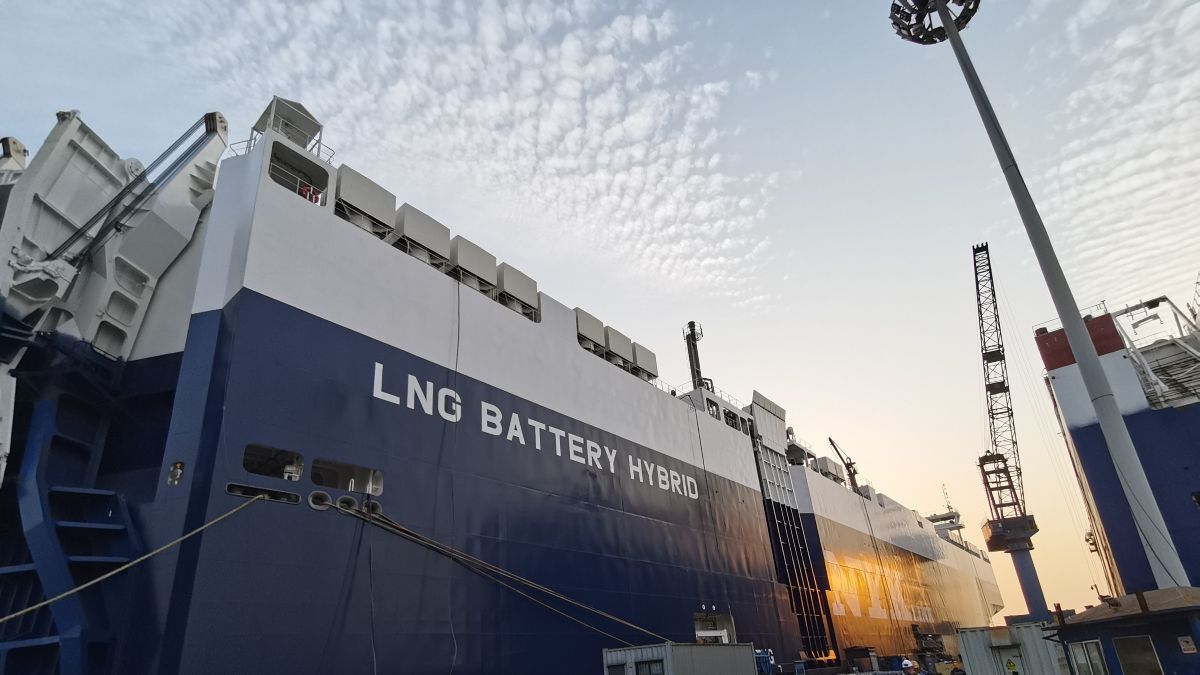Riviera – News Content Hub

25 Sep 2023by Riviera News
Japan’s NYK Group is a participant as a key partner in the Methane Abatement in Maritime Innovation Initiative (MAMII)
MAMII is led by Safetytech Accelerator, a non-profit arm established by Lloyd’s Register Group.
Since its establishment in September 2022, 16 companies and organisations, including NYK, have joined or participated. NYK, Malaysian shipping line MISC, and MiQ – a methane measurement certification company – all joined MAMII at the recently concluded Gastech conference in Singapore.
Through its participation in MAMII, NYK said it will contribute to decarbonising the maritime industry through work with partners.
In its first year, the initiative has produced a methane strategy landscape report covering methane regulatory requirements, ‘Well to Tank’ and ‘Tank to Wake’ analysis, and cost benefit analyses.
NYK said it considers LNG fuel a bridge between conventional heavy fuel oil (HFO) and the realisation of zero-emission ships in the future and is thus promoting the use of LNG-fuelled vessels.
Methane slip, methane gas emissions from LNG into the atmosphere, is a critical issue for reducing greenhouse gas. MAMII seeks to reduce methane emissions in the maritime industry. With the use of LNG growing ever more popular, vessels now need to think of ways to curb methane emissions. Natural gas burns cleaner than coal and oil but emits methane. And while that contains less carbon than many other forms of fossil fuel, methane is also many times more potent than carbon dioxide at trapping heat in the atmosphere.
NYK is among the first movers in adopting next-generation dual-fuel engines that can reduce the amount of methane slip by about half compared to conventional systems.
However, as a recent study aboard the Gaslog Galveston carrier showed, over a 10,000 nautical mile journey, methane slip averaged 3.8% across the ship’s propulsion and auxiliary LNG dual-fuel engines. In particular, the four-stroke auxiliary engines were a key cause of methane slip, with two of the four generators used almost all of the time on the voyage producing average slip rates of 7.9% and 8.5%. Meaning about 8% of all the fuel sent to the engines was released into the atmosphere as unburned gas.
By contrast, Gaslog Galveston’s pair of two-stroke, low-pressure, dual-fuel engines had average methane slips of 1.9% and 2.3%.
One path to abatement in four-stroke auxiliary engines involves operating fewer engines at optimised loads.
In addition, NYK has been actively working to reduce further the environmental impact of LNG-fuelled vessels, such as the introduction of shaft generators that can generate electricity using the rotation of the shaft connected from the main engine to the propeller during voyages and the battery hybrid system, which contributes to the efficient operation of the main engine and power generation engine.
